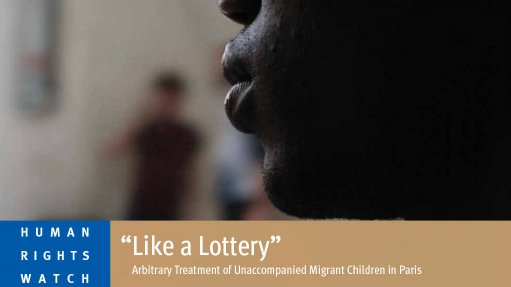
On a typical night, some 200 or more unaccompanied migrant children sleep on the streets of Paris. In large part, these children are homeless as a consequence of arbitrary procedures and inordinate delays in determining that they are under age 18, the first step to entry into the child protection system.
The French Red Cross does age assessments for unaccompanied children in Paris, delegated to do so by the department of Paris (a department is a local administrative division of France), and it has established an evaluation facility (Dispositif d’evaluation des mineurs isolés étrangers, DEMIE) for this purpose. But many children who seek legal recognition of their age report that they are turned away at the door by security guards. Others go through a short interview of approximately five minutes followed by a summary verbal denial. This treatment falls short of what is required by French law, violates international standards, and means that those who are turned away must fend for themselves or seek assistance from nongovernmental organizations to find shelter, food, and other basic necessities.
Those who are fortunate enough to receive full interviews receive a formal decision from the Paris child welfare agency, the Directorate for Social Action, Children, and Health (Direction de l’action sociale, de l’enfance et de la santé, DASES), based on the DEMIE’s evaluation. They are often rejected if they do not have identity documents, even though international standards and French regulations note that documents—which may be lost during arduous journeys—are not required and that approximate age can be determined through questioning. But those who do have documents are also frequently rejected—child welfare authorities and French courts regularly question the validity of birth certificates, passports, and other identity documents, sometimes even when they have been authenticated by embassies.
Report by the Human Rights Watch